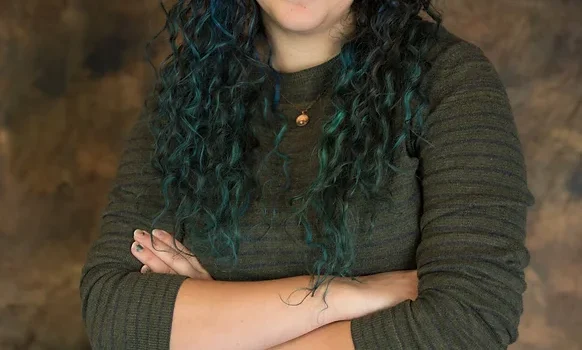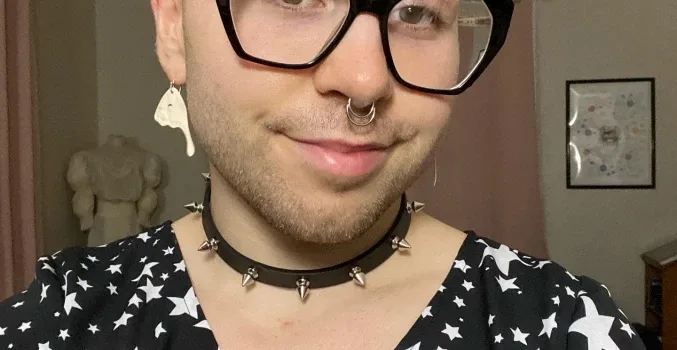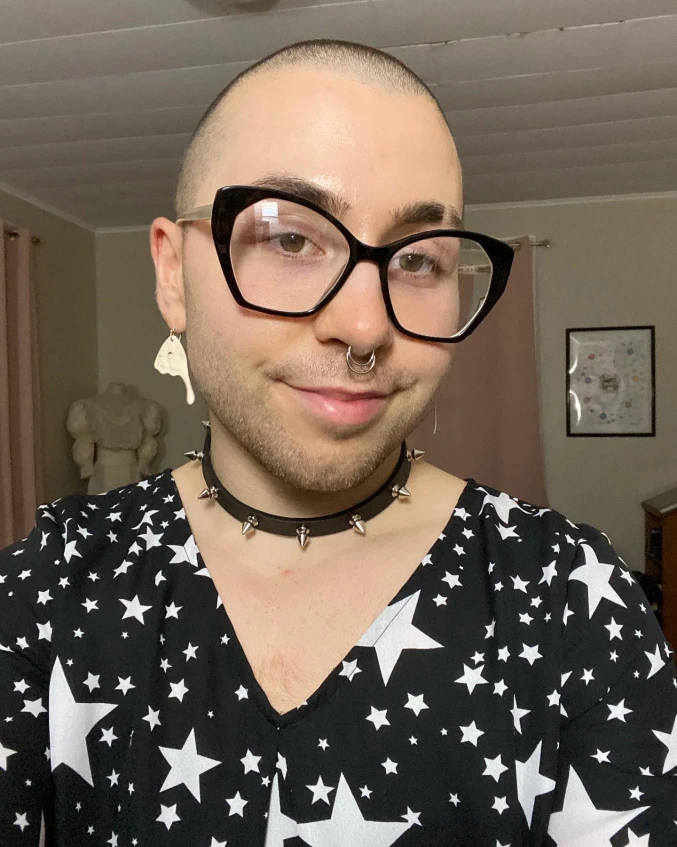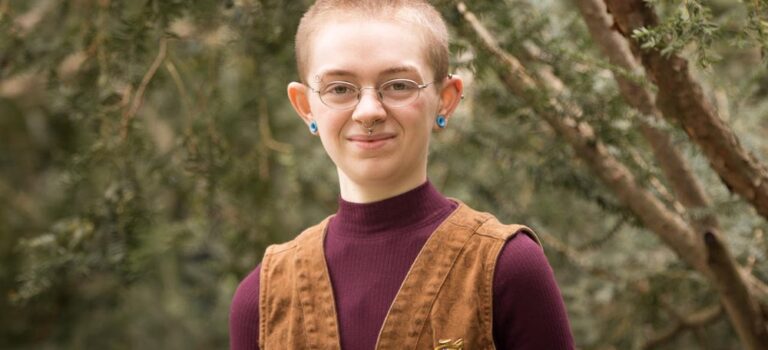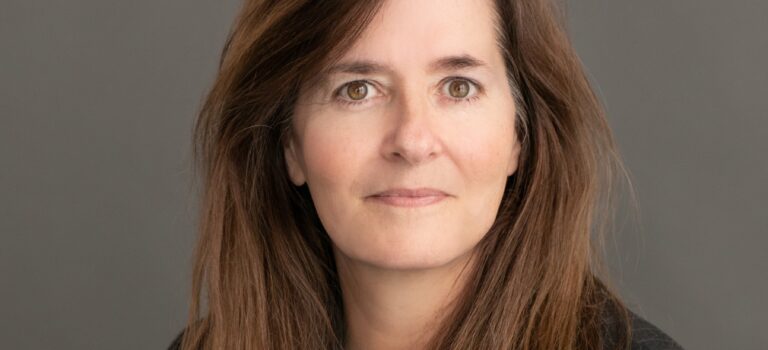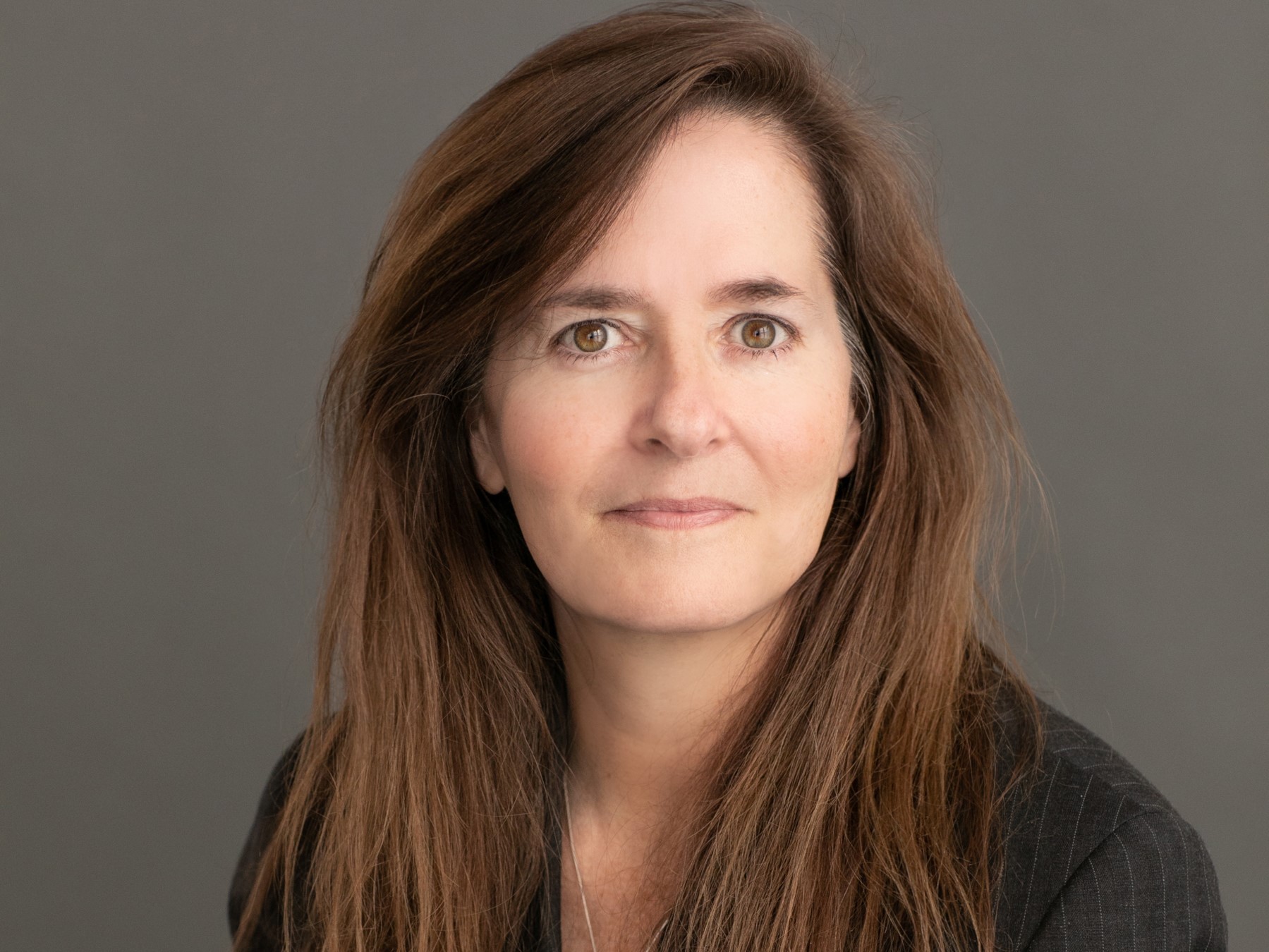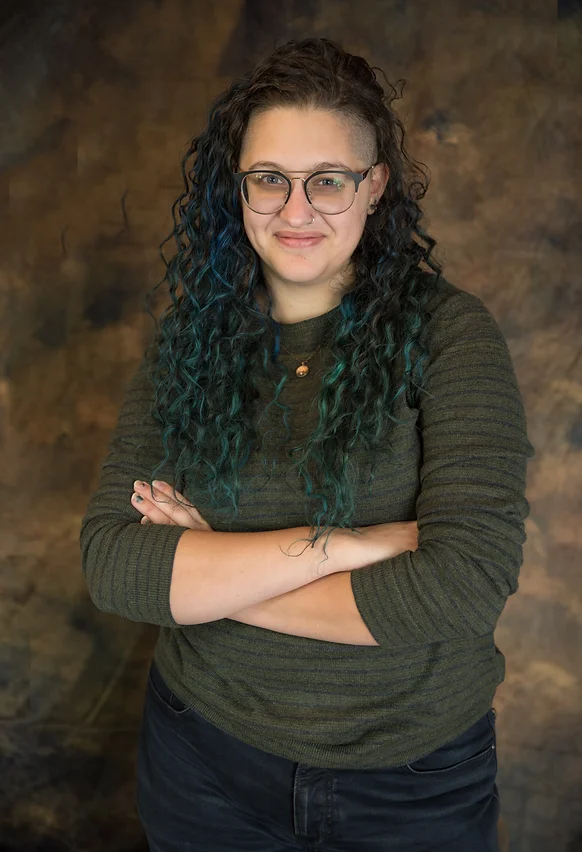
Superstition Review is excited to share a podcast project planned and produced by SR intern Claire van Doren. In this four-episode audio series, Claire will be talking with SR’s queer contributors. In today’s final episode, Claire interviews Gretchen Rockwell, who is a queer American poet and educator. Xe is the author of the chapbook Lexicon of Future Selves (published by Vegetarian Alcoholic Press), which was nominated for the 2022 Elgin Award. Xe has work published in Drunk Monkeys, the Lumiere Review, Up the Stairs Quarterly, Glass:Poets Resist, and elsewhere. To learn more, visit xer website website.
The following transcript has been edited for clarity. Credit goes to FreeSound.org for the sound effects.
Claire van Doren: Hi! My name’s Claire van Doren, and you’re listening to the Superstition Review Pride Community Project. Today, we’ll be hearing from Gretchen Rockwell. They’ll be discussing their experiences with the queer community and how it impacts their work. This is one of four Pride Community specials. Stick around to hear from more of Superstition Review’s queer contributors.
[Phone ringing]
Gretchen Rockwell: My name is Gretchen Rockwell—pronouns xe/xer, the “xe” as in “xenomorph,” but I’ll also use they/them. So my work is—how I do I summarize it… A friend of mine told me my brand is space, science, and the deep sea, and I feel like that pretty much sums up a lot of what I write about. I also write about gender. I’ll write about mythology sometimes.
I also really enjoy writing about unusual connections. So, a lot of times my work will start one place and then pivot abruptly to something else and then come back. I really enjoy taking things that don’t really go together and saying, “No, yes, they do, and here’s how.” I find a lot of joy in exploring connections like that.
I like to combine gender and sexuality with history, myth, with science-based, the deep sea—for a lot of reasons. I think partially it’s because my process of discovering my own gender and sexuality has been a lot of discovery and a lot of self-questioning and self-interrogation and a lot of probing myself. I feel like that really mirrors a lot of what we’ve done with space and the deep sea, in terms of you have to send these probes into this mysterious, unknown territory that you learn only as you explore it. And there’s something in that that resonates with gender and sexuality—for me, at least.
I feel like part of why I shift between these disparate things is part of my ADHD—that my mind just kind of pinballs around. I see the connections, and sometimes I have to trace them out for other people, say, “Here’s how I got from A to G. You don’t see the steps, but they’re there.” In my poetry, that’s something that really has shaped it as well—just pulling those thought processes together.
For me, it’s always been about my own interests and my own experiences, rather than trying to tell a unifying story or speak for a group of people. I really can only speak for myself. And so I think that’s something that my identity—in a lot of ways—has shaped. I’m very aware of my identity and what it is and what it isn’t. I really try to be conscious of only speaking from that and to that, rather than trying to speak for other people.
I have never really felt, necessarily, a connection to the broader queer community as such. My queer community has always been my friends and the people around me, and somehow we’ve all just discovered our own queerness, kind of side by side, and unintentionally we’ve just found each other, somehow. But I don’t necessarily feel that I have a broader queer community that I’m connected to. Figuring this stuff out about myself has been something that’s done either in isolation or with close friends. And so the way I feel, the connection to the broader community, is that I’ve always kind of hoped that putting my work out there, and putting out my voice, someone—like an individual somewhere—can find it and see themselves and feel connected to it. Rather than necessarily writing for a community or to a community.
It’s just kind of funny how we all seem to find each other. It’s just something that we sense in other people that we’re drawn to. I’m not sure how that happens or why that happens, but you just feel that sense of sameness. Like I have a lot of neurodivergent friends as well because we just all flock together.
I guess that kind of unusual connection that I find in my work is represented to an extent in how I relate to other queer people. Because it’s this… Counter-cultural is maybe the way to put it. Counter-this is heteronormative, making it by default unusual. I don’t know if I’d call it an unusual connection, but I think that the threads of connection and finding those threads of connection—in small ways and in small things—has been more evident to me than finding big connections.
What I’m hoping to accomplish with my writing in the future is, again, just putting myself and my work out there so that maybe someone who hasn’t seen themself in poetry so far or hasn’t seen themself represented in art so far—can maybe one day find my work and be like, “Oh, this person gets it, xe gets it.” Just to have it resonate with even one person is what I would love for my work in the future. There’s so many projects that I’m sure will come to me; they seem to kind of spring out of nowhere.
I can’t wait to see what’s coming, I have no idea what’s coming, but I’m sure it will be interesting.
[Phone hangs up]
CVD: Thanks for joining us! Be sure to check out our YouTube page for more audio and video content, as well as our official Superstition Review blog.
